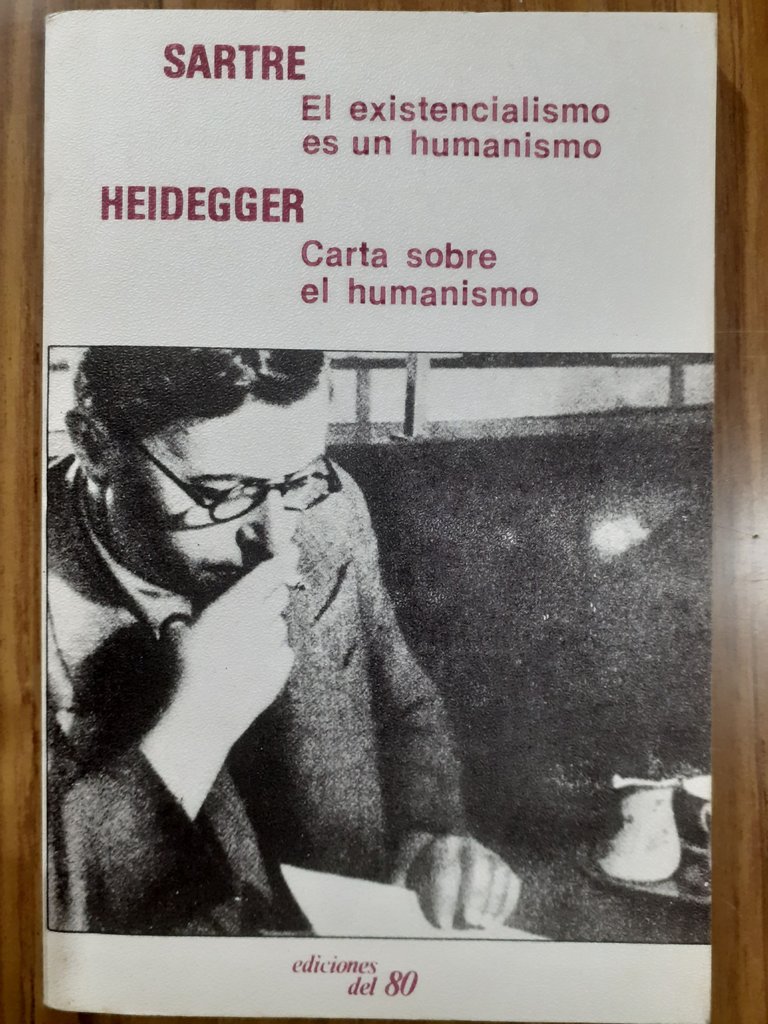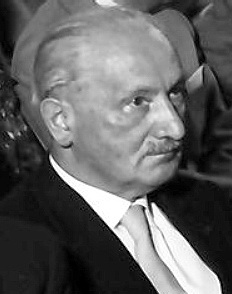Heidegger wrote this in 1946, and it was published the following year. The writing was prompted by a letter referenced by Heidegger in this open response, which the French philosopher Jean Beaufret sent him, asking: "How can we restore meaning to the word 'humanism'?" Beaufret was referring to the tragedy of the recent world wars and the ruined state of Europe. How could one defend something—humanity—that had caused so much destruction and pain?

Although Sartre drew inspiration from Being and Time for his humanistic existentialism, Heidegger disliked this interpretation, which led to the creation of Letter on Humanism to distance himself from that movement.
Heidegger's letter struck me as a ramble through elusive, imprecise abstractions—a linguistic jumble that might make one think there must be something profound behind the words, but there's nothing more than a "pulling at the thread" to keep speaking about vague abstractions. More meanings can be forced from the text because, as it says little concrete amidst so many words, much can be assumed, and it would be no easy feat to prove those assumptions wrong. The lack of cohesive and/or coherent writing leaves gaps that the reader’s imagination can freely fill. It seems Heidegger enjoyed combining words simply because they sounded abstractly mysterious, without much concern for what the reader might think they meant.
In several parts, he explains concepts from his famous work Being and Time, but if these are explanations, one wonders how difficult the original work must have been.
It is unclear to me what Heidegger expects the poor human, cast into Being, to do with his proposal of dedicating themselves to thinking about the forgotten Being, which, according to him, was neglected due to Plato and Aristotle. Should we start writing about it in dreadful prose like Heidegger, trying to surpass this "prophet" of Being? Should we poeticize about Being? Or, as one might interpret Heidegger’s critique of the "animal rationale," should humans become irrational, bestialize themselves (he certainly speaks of philosophy distancing itself from science and technical production)?

For Heidegger, a renewed humanism is one that focuses on thinking about Being. But how much can one think about it before getting bored (especially if we reach the conclusions of Parmenides and Heraclitus that Being is unknowable—what else is there to think about after arriving at that conclusion)?
Certainly, there are a few good phrases in this dense little book, but I don’t think they are worth reading everything around them. I don’t think I’ll read anything else by Heidegger if this can be considered a representative sample of his work. Sartre, despite the criticisms I have regarding his Existentialism is a Humanism, writes much more clearly there, making it seem like he actually cares that the reader understands him, whereas Heidegger doesn’t seem to care much. So, while I may read more of Sartre, I don’t think I’ll read more, at least from primary sources, of Heidegger.
I shall make another post for Sartre's Existentialism is a Humanism
Translated with chatgpt from spanish